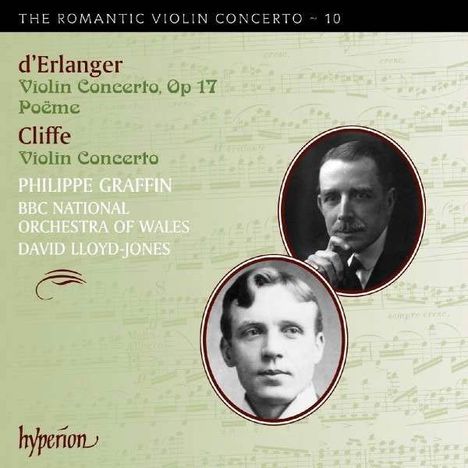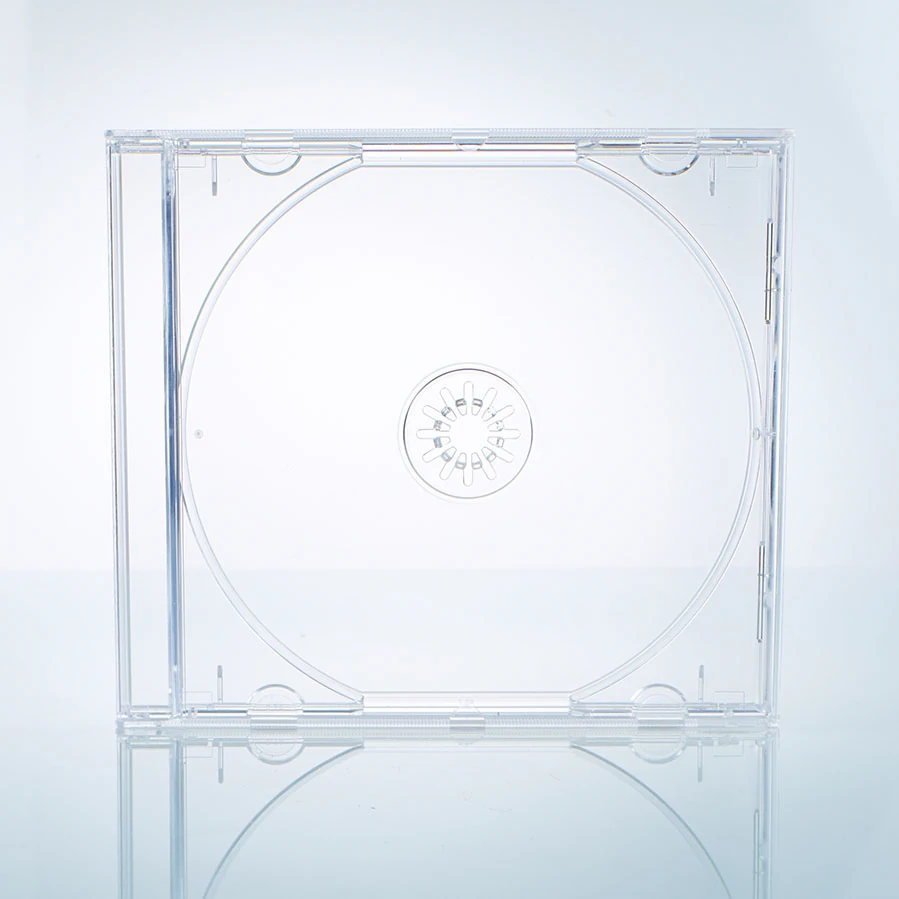Frederic d'Erlanger: Violinkonzert d-moll op.17 auf CD
Violinkonzert d-moll op.17
Herkömmliche CD, die mit allen CD-Playern und Computerlaufwerken, aber auch mit den meisten SACD- oder Multiplayern abspielbar ist.
Lassen Sie sich über unseren eCourier benachrichtigen, falls das Produkt bestellt werden kann.
+Poeme D-Dur
+Cliffe: Violinkonzert d-moll
- Künstler:
- Philippe Graffin, BBC National Orchestra of Wales, David Lloyd-Jones
- Label:
- Hyperion
- Aufnahmejahr ca.:
- 2010
- UPC/EAN:
- 0034571178387
- Erscheinungstermin:
- 18.2.2011
- Serie:
- The Romantic Violin Concerto
Ähnliche Artikel
Die zehnte Folge der Serie »The Romantic Violin Concerto« präsentiert Werke zweier sehr selten gespielten Komponisten, die beide in London lebten. Baron Frédéric d'Erlanger (1868–1943) stammte aus Paris und genoss hohes Ansehen. Sein Violinkonzert sticht vor allem durch die Transparenz in der Besetzung hervor. Der in England geborene Frederic Cliffe (1857–1931) konnte nur für etwa 16 Jahre wie ein schnell verglühender Stern Erfolge feiern. Seine rhythmisch und melodisch vielfältige Musik erlebt erst jetzt wieder eine gefeierte Renaissance.
Product-Information:
Hyperion's Romantic Violin Concerto series reaches its tenth volume, and turns to two composers based in England, and works by them which have lain hidden for decades. This disc provides a fascinating glimpse of musical history and the shifting fashions of the age which made fame such a fleeting thing for so many composers.
Frederic Cliffe had a brief but dazzling career as a composer – his Opus 1 was enthusiastically acclaimed, and he continued to write music for performers including Clara Butt at the peak of her fame. But he disappeared as quickly as he had arrived, and his reputation rests on only six works, including the Violin Concerto in D minor. It was performed by the Budapest-born violinist Tivadar Nachéz, and the finale in particular contains much music in a Hungarian idiom.
Baron Frédéric d'Erlanger was a banker, born in Paris but with a German father and American mother, who moved to London in his teens. He was naturalized British and long resident in London, where he was involved in promoting music and was later a trustee of the London Philharmonic Orchestra. He was also a composer, and although his catalogue of works is not huge, throughout his life there was a steady stream of first performances by the most celebrated artists and orchestras of the day. Many record collectors will have come across him as the composer of the ballet music Les cent baisers, recorded by Dorati and the London Symphony Orchestra after its success when danced at Covent Garden in 1935.
Rezensionen
»With repeated listening one discovers more and more in Cliffe's Violin Concerto-which is as encouraging as finding the d'Erlanger preserving its sparkle when revisiting it. Graffin plays superbly, with all the fire and tenderness required, and with glorious tone. The BBC National Orchestra of Wales is as attentive and sympathetic as one would expect with David Lloyd-Jones conducting, and the recording is well judged in terms of balance and perspective« (International Record Review)
Rezensionen
N. Hornig in FonoForum 08/11: »Dem Solisten stellen sich hier dankbare Aufgaben, gleich zu Beginn ist er mit Doppel- und Tripelgriffen gefordert. Graffin meistert die manuellen Herausforderungen des Soloparts souverän, und auch die melodischen Schönheiten des Werkes lässt er schwelgerisch aufblühen. Cliffe, der Klavierprofessor am Royal College of Music war, schrieb nur sechs größere Werke. Sein Violinkonzert von 1896 geriet nach der Uraufführung für ein ganzes Jahrhundert in Vergessenheit - bis es Philippe Graffin 2007 wiederentdeckte und aufführte. Seiner Interpretation hört man an, dass ihm das Werk eine Herzensangelegenheit ist.«Disk 1 von 1 (CD)
Konzert für Violine und Orchester d-moll op. 17 (1902)
-
1 1. Satz: Allegro moderato - Andantino con moto - Cadenza
-
2 2. Satz: Andante - Cadenza - Adagio
-
3 3. Satz: Allegro molto - Allegro poco più moderato - Vivo
-
4 Poëme D-dur (1918 / 1926) (für Violine und Orchester)
Konzert für Violine und Orchester d-moll (1896)
-
5 1. Satz: Allegro moderato - Cadenza - Molto tranquillo - Molto allegro
-
6 2. Satz: Andante (poco lento)
-
7 3. Satz: Lento (recitativo) - Allegro energico - Poco andante (tranquillo) - Allegro






